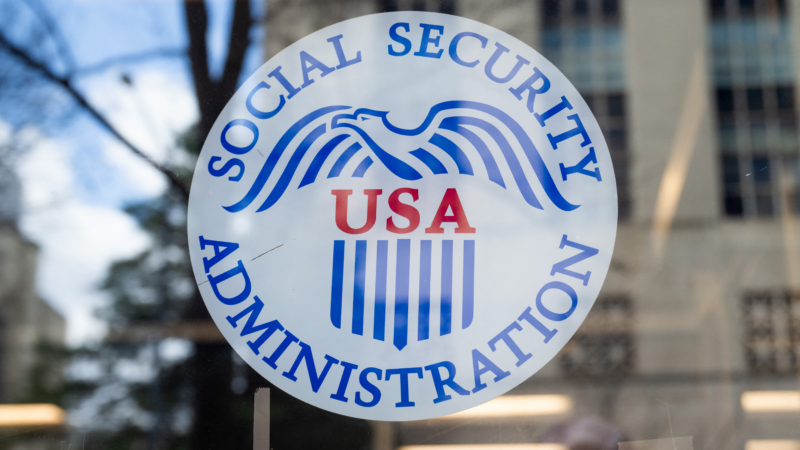Social Security officials partially walk back plans for in-person verification
The Social Security Administration is revising proposed changes that would have required some beneficiaries to prove their identity in-person when seeking services.
Officials said in a statement Wednesday that they are exempting people who apply for Medicare and disability benefits, as well as supplemental income help for the poor, from having to prove their identity in-person at a social security office if they are unable to use the agency’s online system.
They also announced they are pushing back the start of the new policy by two weeks, to April 14.
The new rules, which were first announced last week, were met with concerns from advocates for seniors and people with disabilities, as well as lawmakers. Dozens of Democratic members of Congress sent a letter to agency leaders last week asking them to reconsider the change because it would “create additional barriers” for people seeking services — “particularly for those who live far from an office.”
“We have listened to our customers, Congress, advocates, and others, and we are updating our policy to provide better customer service to the country’s most vulnerable populations,” Lee Dudek, acting commissioner of Social Security, said in the Wednesday statement.
For decades now, claimants have been able to complete their benefit application process entirely by phone.
But last week, Social Security officials announced that people who cannot prove their identity using the agency’s online system would be required to show up in person when seeking benefits or changing direct deposit information.
Dudek, who was tapped for the role by President Trump, said the policy change was an effort to carry out the administration’s goal of protecting benefits while rooting out waste and alleged fraud.
“For far too long, the agency has used antiquated methods for proving identity,” Dudek said in a statement. “Social Security can better protect Americans while expediting service.”
But advocates and others warned the changes were in service of inflated and unsubstantiated fraud claims.
“The new policy is supposedly intended to prevent ‘fraud,’ without any proof that phone claims were being paid out fraudulently,” Max Richtman, president and CEO of the National Committee to Preserve Social Security and Medicare, said in a statement last week. “The new process would force seniors and people with disabilities to navigate a needless technical hurdle in applying for their earned benefits.”
According to the agency, these new identity requirements will now apply only to people seeking retirement, survivor or auxiliary benefits.
As of last month, more than 50 million Americans received retirement benefits from the SSA and thousands of Americans newly qualify for benefits every day.
How George Wallace and Bull Connor set the stage for Alabama’s sky-high electric rates
After his notorious stand in the schoolhouse door, Wallace needed a new target. He found it in Alabama Power.
FIFA president defends World Cup ticket prices, saying demand is hitting records
The FIFA President addressed outrage over ticket prices for the World Cup by pointing to record demand and reiterating that most of the proceeds will help support soccer around the world.
From chess to a medical mystery: Great global reads from 2025 you may have missed
We published hundreds of stories on global health and development each year. Some are ... alas ... a bit underappreciated by readers. We've asked our staff for their favorite overlooked posts of 2025.
The U.S. offers Ukraine a 15-year security guarantee for now, Zelenskyy says
Ukrainian President Volodymyr Zelenskyy said Monday the United States is offering his country security guarantees for a period of 15 years as part of a proposed peace plan.
Genre fiction and female authors top U.S. libraries’ most-borrowed lists in 2025
All of the top 10 books borrowed through the public library app Libby were written by women. And Kristin Hannah's The Women was the top checkout in many library systems around the country.
Electric vehicles had a bumpy road in 2025 — and one pleasant surprise
A suite of pro-EV federal policies have been reversed. Well-known vehicles have been discontinued. Sales plummeted. But interest is holding steady.








